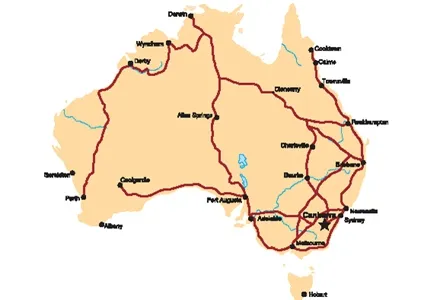Poland might double road spend after the new government criticised spending calculations up to 2025 put together by the previous administration.
The Vice-Minister of Infrastructure said expenditure would need to nearly double to around €47 billion for the planned new dual carriageways and motorways.
A report by daily economic and political newspaper Rzeczpospolita said the government is calling the estimate of €3.7 million to build a 1km of road “unrealistic”.
The rethink comes after Poland's euros
December 7, 2015
Read time: 2 mins
Poland might double road spend after the new government criticised spending calculations up to 2025 put together by the previous administration.
The Vice-Minister of Infrastructure said expenditure would need to nearly double to around €47 billion for the planned new dual carriageways and motorways.
A report by daily economic and political newspaper Rzeczpospolita said the government is calling the estimate of €3.7 million to build a 1km of road “unrealistic”.
The rethink comes after Poland's eurosceptic and conservative opposition Law and Justice Party won parliamentary elections in October, signalling a shift towards left-leaning economic policies. PiS, as Law and Justice and Law is known by its Polish acronym, is in favour of more public spending.
Law and Justice, led by Jaroslaw Kaczynski, defeated prime minister Ewa Kopacz of the centrist Civic Platform.
News agencies reported that the return to power of Justice and Law after eight years in opposition will probably mean an increase in state control of the economy with more taxes on banks and a slow-down in privatisation. Also, adopting the euro is not likely on the party’s agenda.
Rating agency Standard and Poor's said Poland's A- rating with a positive outlook remains unchanged for the moment. S&P head analyst on Poland, Felix Winnekens, said the rating could dip to “stable” if there were “reversals regarding fiscal consolidation, macroeconomic management or monetary policy”.
It was in August that then prime minister Kopacz announced that around €25 billion were to be earmarked for roads up to 2023, with almost 60 ring roads and 4,000km new road expected to be built.
Meanwhile, the city of Ruda Slaska will allocate €70 million in loans from the European Investment Bank towards paying for the €162 million needed for infrastructure work, including roads, between 2016-2019.
The Vice-Minister of Infrastructure said expenditure would need to nearly double to around €47 billion for the planned new dual carriageways and motorways.
A report by daily economic and political newspaper Rzeczpospolita said the government is calling the estimate of €3.7 million to build a 1km of road “unrealistic”.
The rethink comes after Poland's eurosceptic and conservative opposition Law and Justice Party won parliamentary elections in October, signalling a shift towards left-leaning economic policies. PiS, as Law and Justice and Law is known by its Polish acronym, is in favour of more public spending.
Law and Justice, led by Jaroslaw Kaczynski, defeated prime minister Ewa Kopacz of the centrist Civic Platform.
News agencies reported that the return to power of Justice and Law after eight years in opposition will probably mean an increase in state control of the economy with more taxes on banks and a slow-down in privatisation. Also, adopting the euro is not likely on the party’s agenda.
Rating agency Standard and Poor's said Poland's A- rating with a positive outlook remains unchanged for the moment. S&P head analyst on Poland, Felix Winnekens, said the rating could dip to “stable” if there were “reversals regarding fiscal consolidation, macroeconomic management or monetary policy”.
It was in August that then prime minister Kopacz announced that around €25 billion were to be earmarked for roads up to 2023, with almost 60 ring roads and 4,000km new road expected to be built.
Meanwhile, the city of Ruda Slaska will allocate €70 million in loans from the European Investment Bank towards paying for the €162 million needed for infrastructure work, including roads, between 2016-2019.








